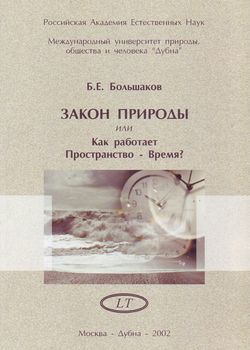Contents
Maslova Natalya Vladimirovna
TENSOR AS A MECHANISM FOR UNDERSTANDING PERIODIC LAW SYSTEMS IN SYSTEMONOMICS
Kibalnikov Sergey Vladimirovich
INTELLECTUAL PROPERTY AS A DRIVER FOR THE DEVELOPMENT OF A COGNITIVE-DIGITAL ECONOMY
Golovin Andrey Arkadievich
MODELING DEVELOPMENT OF COMPLEX SYSTEMS USING POWER PARAMETERS AND SOCIAL TIME BUDGET
Shiryaeva Lubov Andreevna
LOCAL CURRENCIES AS A TOOL OF LOCAL ANTI-CRISIS POLICY
Idrisova Guldana Zeynullaevna
USE OF GEOINFORMATION TECHNOLOGIES IN ENVIRONMENTAL MONITORING OF WATER ECOSYSTEMS
Krivova Tatyana Viktorovna, Tupikova Tatiana Viktorovna
DIAGNOSTIC ANALYSIS OF THE INFLUENCE OF THE IT SPACE ON YOUTH INFORMATIZATION
Nikonov Eduard Germanovich, Samsonov Alexey Dmitrievich
ANALYSIS OF STATISTICAL INFORMATION RESOURCES AND INSTRUMENTS USING GIS TECHNOLOGY
Uzakova Salima Andomasovna, Kamieva Almagul Akbulatovna
WELFARE AS A SOCIO-ECONOMIC CATEGORY AND ITS MEASUREMENT PRACTICES IN KAZAKHSTAN
Krivova Tatyana Viktorovna
CALCULATING THE ECONOMIC EFFICIENCY OF IMPLEMENTING AN INFORMATION SYSTEM
Yumalin Andrey Vasilyevich
MODERN ASPECTS OF IMPROVING METHODS ON DETERMINATION OF DAMAGES IN THE DISTRIBUTION ELECTRICAL NETWORK OF SUBSTATION 6-35 kV OF OIL AND GAS PRODUCING ENTERPRISES
Birich Inna Alexeevna
FROM THE HUMANISM OF THE RUSSIAN COSMISM OF THE SILVER AGE TO THE HUMANISM OF THE NOOSPHERIC CONCEPT OF THE SOCIETY OF MODERN RUSSIAN THINKERSS
Akhmetzhan Samal Zakikyzy, Gumarov Gali Sagingalievich, Izbastina Asel Nurlanovna, Nesipbek Akzhan Tuleukyzy
USE OF COMPUTERS IN FORMING CREATIVE ACTIVITIES OF FUTURE SPECIALISTS

 ПОСЛЕДНИЕ ЭКЗЕМПЛЯРЫ ТИРАЖА
ПОСЛЕДНИЕ ЭКЗЕМПЛЯРЫ ТИРАЖА


